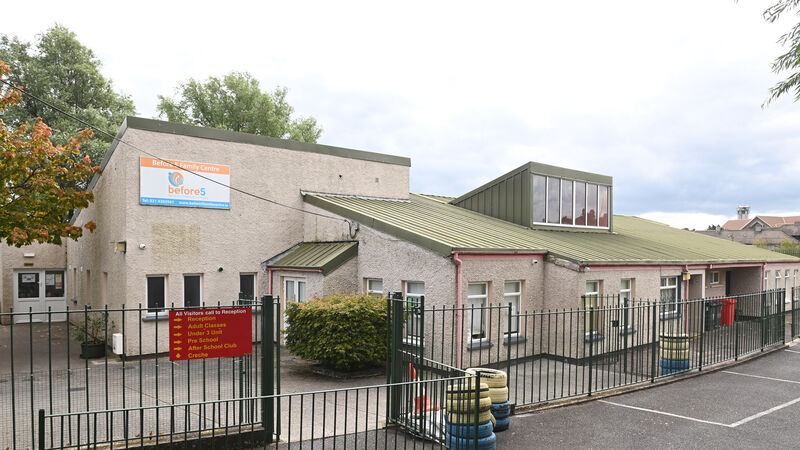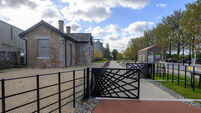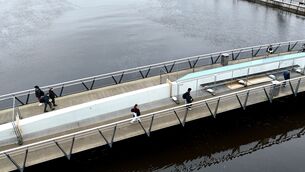Will beloved Cork city childcare centre celebrate 50 years?

Sr Genevieve Nolan, a Montessori teacher, opened the pre-school in the Parochial Hall in September 1972, and in September 1974 they moved to the purpose-built pre-school. Cork Corporation provided the site and the Southern Health Board agreed to give a yearly grant towards the running of the pre-school.
IN 1972, Fr Wrenne, a priest in the Gurranabraher parish, asked the Daughters of Charity, who were in the local hospital — the North Infirmary — if they would open a pre-school in the parish.
Sr Genevieve Nolan, a Montessori teacher, opened the pre-school in the Parochial Hall in September 1972, and in September 1974 they moved to the purpose-built pre-school. Cork Corporation provided the site and the Southern Health Board agreed to give a yearly grant towards the running of the pre-school.
The funds to build came from fundraising and from money that was left in the will of JJ Walsh of Bandon, who had been a minister in the first inter-party government. The money had been intended to be spent on a memorial to those who died in the War of Independence, but Fr Wrenne knew the family and a decision was made that the money would be well spent on the pre-school, which was originally named the JJ Walsh Memorial School.
Sr Genevieve and two other Montessori taught three sessions in the morning and two in the afternoon. In 1978, Sr Genevieve went back to Dublin and Sr Marian Taggart replaced her, and by 1984 there were 120 pre-school children attending daily.
In 1984, Sr Marian was transferred to Dublin, and the Daughters of Charity did not have a sister to replace her. Three Presentation sisters had moved into Gurranabraher parish in 1982 and they were asked to provide a sister to work with the parents.
I was appointed as co-ordinator of the centre in 1984, and a third Montessori teacher was employed for the pre-school. As fundraising was important, I asked for volunteers to make soft toys at the parents’ meeting, and a group of about 20 volunteered.
Every Tuesday morning they met in the staff room and made the toys which were then sold for fundraising. During these sessions, which were great fun, all sorts of topics were discussed.
Cork Labour Party rep slams minister’s ‘poorly timed and worded’ statement on childcare closures https://t.co/9TIPO4jjkl
— EchoLive.ie (@echolivecork) August 28, 2023
Some of the mothers were finding difficulty helping their children with maths and Irish, so a class was started for parents in maths and Irish. Later, other classes followed, such as aerobics, cookery and confidence-building, all in response to needs expressed by the group. This was the 1980s, when there was very high unemployment locally and very few women worked outside the home.
Various classes continued but it became obvious that rooms for parents were needed and a creche was needed for the children under three who came with the parents. In 1987, plans were drawn up for an extension and the centre began to apply for grants.
GRANTS
Luckily, People in Need and the National Lottery began at this time, and some grants were obtained over the next two years. The extension cost IR£72,000 and was built by Kilmoney Construction. Eugene O’Connor, who was the Southern Health Board community worker at the time, was very helpful. Grants were received through the SHB and from a fund that was raised to keep the North Infirmary open. When it closed, the money was dispersed to local causes and the centre received IR£15,000. The Presentation Sisters gave an interest-free loan, which helped to pay bills, and was paid back as the grants came.
With the extra room, courses for adults expanded in the morning and also at night. Parents with children under three could now come as there was a creche. Courses, including women’s health issues, yoga, dance, upholstery, flower arranging, and art, were available. Besides what people learned, the social support and friendships built up over the years were an important aspect of the sessions.
University College Cork offered a two-year social studies course in a community setting, and in 1992 a group of 22 got their diplomas, which was a huge achievement as most had only spent a year or two at second level.
In 1992, the centre was asked to start an under-three unit, where parents and children would come together.
In 1997, an afterschool club was started in conjunction with the local primary school. This came about because we had learned there were children who finished school at 1pm and were asking to let them come back to school in the afternoon.
Since then, the homework club provides space and help with homework, as well as play time and crafts, for around 50 children daily. It also provides summer camp for four weeks in July.
The Presentation Sisters Ministry fund gives financial support to the afterschool club, and I work as a volunteer in the club since I retired as co-ordinator in 2006.
FÁS CE schemes provided some extra staff — many of whom trained in childcare and five of whom joined the permanent staff. Others who did the childcare training found work in other childcare facilities.
The centre was able to facilitate counselling for local people who needed it over the years, and a listening ear was always available.
Above all, the Before 5 Centre has been a facility well-used by the community since 1975 and has grown and developed in response to community needs.
EUROPEAN FUNDING
European funding came on stream in 2000 and the centre applied for, and was granted, funding for a childcare co-ordinator and three childcare workers. This meant that we now had extra permanent staff as assistants in the classrooms and in the afterschool club.
In 2001, parents began looking for creche facilities because many had taken up part- or full-time work. The creche, built in 1987, only catered for children of parents in the adult classes.
Again, the EU provided capital funding, so plans were drawn up for a larger creche, which was opened in September 2005.
The centre has continued to respond to the needs of the community. The outdoor area has been developed and children can now be outdoors, even in wet weather.
Play therapy is available as an integral part of the centre since 2019, a service offered not only to children already in the centre but to any child who needs it in the local area. Up to 30 children have availed of this service in the past year.
In 2024, the Before 5 Centre hopes to celebrate 50 years of service to the Churchfield and Gurranabraher community.







 App?
App?


